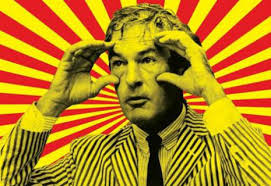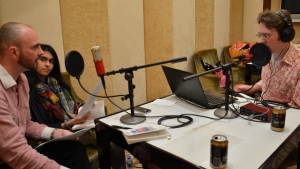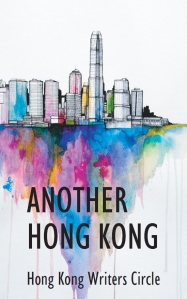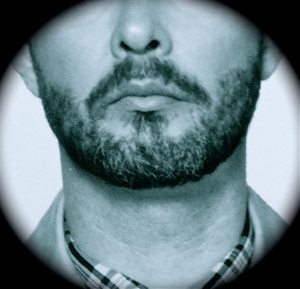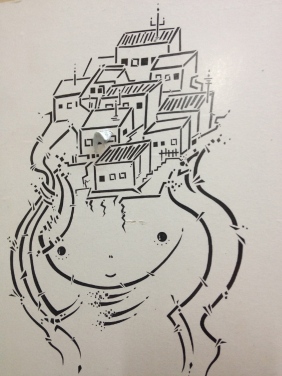
Mr and Mrs Rutter lived at the end of the avenue in a top-heavy, ramshackle wooden house that appeared to be staggering forward into the road to welcome arrivals or block departures from the deserted neighbourhood.
As they pulled up outside, a large pot-bellied bird vacated the top of the family pile with a disgruntled cawing. Patrick watched as it leavened itself over their neighbours’ roof tiles, almost colliding with a weathervane shaped like blades of grass blowing in the wind. Meanwhile Julie had opened her door and spilled out of the van with a ‘what a fucking journey’. Mrs Rutter quit her gardening and hurried out through a lopsided front gate to meet them.
‘Mum,’ said Patrick, his cramped legs limping towards her.
‘Julie,’ said Mrs Rutter, a woman of formidable proportions with fierce green eyes and a stiff lick of immovable grey hair. ‘You came all this way to see us.’
The women embraced. Patrick squinted towards the doorway but there was no sign of his father. Eventually the women parted and Mrs Rutter regarded her son.
‘You’ve had an accident I hear?’
‘That’s right.’
‘Fighting again, was it?’
‘Artistic differences.’
‘Bollocks. He’d probably had enough of your bull.’
Mrs Rutter swung her considerable bulk in her son’s direction. Patrick braced himself for some delayed affection but instead got a whack round the ear.
‘Don’t worry, Paddy,’ she laughed. ‘We’ll soon get that brain working again.’
She hurried them off the road and up the dusty path beside the rockery where she had just downed tools. An extended family of tiny black spiders scaled a mini-mountain of hand-painted pebbles. Beside the path eight individual stones had each been given their own letter and arranged to spell out WELLCOME.
‘Looks nice, Mum,’ said Patrick, for which he received another whack.
‘That hurt,’ he told her, remembering another report he and Julie had watched on the TV news.
‘Have you not heard about the revised state ordinance on parent-child -?’
Julie kneed him in the thigh.
‘Fuck, why the aggression?’
‘Don’t be such a baby,’ said Mrs Rutter, showing them into the front sitting room.
Patrick sank into a mushroom-coloured couch while Julie perched on a sponge toadstool.
‘I’ll put the lights on,’ their host announced, as if this was something saved for special occasions. ‘Air?’
‘Yes please,’ Julie croaked politely.
The electric candles fixed to the walls and atop the brooding television offered precious little illumination but the air conditioner was game, rattling into life and releasing into the large, dank room a welcome trickle of freshness. With enough imagination its timbre – rich, warm and repetitive – could have been mistaken for that of a long-lost uncle, recounting his tales on loop to no one in particular while giving the rest of the household permission to parlay.
Certainly it seemed to help Julie and Mrs Rutter overcome the niceties that threatened to prevent the travellers from obtaining refreshments, as Julie’s apologies for failing to bring any supplies from the city were countered by Mrs Rutter’s unconvincing insistence that they had plenty in the pantry.
‘I’ll give you a hand,’ said Julie, and the two left the room to see what they could find.
Patrick waited for the stinging in his ear to die down. He clung to the hope that his father might make a suitable ally against these brutal women. But there was no sign he was on his way as the seconds passed on a mantel clock made from another colourfully painted stone. He decided to get up and seek inspiration. A vase of plastic flowers near the lace-curtained window caught his eye and he went over to investigate.
It was a shrine of sorts. Beside the vase was a copper dish containing several decomposing spheres of unidentifiable fruit – their spores speared with the wooden butts of incense sticks. Pinned to the wall above the offerings were a series of crinkled colour photographs of variable quality. One was of a blonde-haired boy blurred in motion, too busy growing up to sit still; another showed a dark-haired young man in starched uniform propped up for the camera. The final in the series was by far the most surprising. Here was the same man smiling with his comrades. Most were dressed in black body stockings, or some part thereof; a couple were holding machine guns. All were crouched around the oversized head of a smiling foam policeman.
‘My…brother…’
Why hadn’t Julie told him he had a brother? Because she was too busy getting him here so he could experience this kind of revelation. Why hadn’t he asked her about siblings? It hadn’t crossed his mind, any more than consideration of his parents had. What kind of a person was he? The women returned with snacks and drinks on trays.
‘Don’t tell me you’ve forgotten your own brother, Paddy?’
‘Of course not,’ he hoped the chill in his heart hadn’t spread to his voice. ‘How could I forget about old…young…’
He read the inscription.
‘Sam.’
Only 24 when he lost his life, according to the dates. Three years his junior.
‘It’s those that killed him you should be fighting,’ his mother explained. ‘Not your workmates.’
‘Come and get some water,’ Julie told him.
‘And then you can go and find your father,’ Mrs Rutter added.
The interior of the house was dark and musty with unaccountable shadows in the armpits of stairwells and in corners where home improvement projects appeared to have been angrily abandoned. The main staircase, almost as steep as a ladder, began towards the rear of the house and ran diagonally back to front. This contrivance could not have been part of the original layout, suggesting the stairs had been clumsily reversed.
Who would have engaged in such a mad restructuring? Why would anyone put their stairs so far from the lounge, leaving a hallway chasm of crooked space below them from which cobwebs could survive untouched at vertiginous heights? He wasn’t sure he wanted to know the answer. He began to climb.
Kill the bastards
Kills the bastards
Kill the lazy rebel bastards
Where had that come from? He paused for breath halfway up the stairs, recovering on a shallow step while gripping the iron balustrade. Closing his eyes he saw his brother’s face again. Yes, they had run up here together. When the air was clearer. When ideas were clearer. What did they do to you Sam?
Make the state
Good and great
Tie your fate
To the state
‘Who’s that singing?’
The voice came from near the top of the house. There was still another staircase to go.
‘It’s me, Dad – your son.’
‘Sam?’
‘No, it’s Patrick – I’ve come home to see you.’
Silence.
More strange design choices on the middle landing of the house. Foam was taped to the fixtures and fittings; dirty pillows were assembled at the foot of the stairs going up to the attic rooms. A figure shuffled into Patrick’s vision as he took stock. His father was past his prime. His slack jaw was silver with roughage and his hand trembled on the bannister as he looked down with a mixture of defiance and trepidation.
‘What’s with all the insulation?’ Patrick called up.
‘Damn son fitted it.’
‘Sam?’
‘No – the other one, says it’s cheaper this way if I have another fall. Cheaper than calling a doctor.’
‘What a prick,’ Patrick smiled. So his father had lost his mind as well. Perhaps they could give each other solace.
‘Oh he wasn’t all bad,’ the head of the family continued. ‘Loyal patriot. Got a bunch of awards. Come on up and I’ll show you what he made me for a retirement present.’
Patrick took the last staircase and entered the spacious attic studio. A hatch perpendicular to the sloping roof was open to the elements. The sky was less soupy now and a slight breeze spun the various model aeroplanes and spacecraft that hung on wires from the slatted wooden ceiling of his father’s den. Below them the room was dominated by a large rectangle of board from which rose a magnificent papier-mâché representation of lush hills and spindly skyscrapers; hand-painted and with a to-scale railway track running along the edge of the model world.
‘Seaport,’ Patrick said.
‘Where else?’ his father replied crankily.
‘What a fantastic gift.’
‘This isn’t my gift,’ the old man barked, sitting down heavily at a roll-top bureau beside the skylight.
Patrick ran a finger through the hills, into the town; skimmed the coastal train track that finished at Casio. When he looked up he found his father staring at him, the bureau rolled halfway up. Rutter senior had a wild, vulnerable look in his eyes.
‘Who are you anyway?’ he asked. ‘Friend of my son’s?’
‘That’s right,’ Patrick assured him. ‘We’re close.’
‘Okay,’ Rutter’s growl returned. ‘Guess I can trust you then.’
He finished rolling up the bureau and Patrick saw that a control panel lay behind it. There were lights and buttons and taped instructions, ‘UP’, ‘DOWN’ and ‘HOVER’ amongst them. There was a thorough amateurishness to it that Patrick admired. Men had built this for themselves – with care and attention – rather than it having been mass-produced by and for the state. Mr Rutter clicked and punched some buttons and the panel started vibrating violently. The good thing with state products, Patrick reflected, was they were safety-tested before being used. He let his eyes wander back to their slice of sky.
‘What the hell is that?’
‘Don’t mind him,’ said Rutter without looking up. ‘He just likes to play.’
The pot-bellied bird blinked its red eyes twice at Patrick. It didn’t seem to mind him but nor did it look like it wanted to play. The thing seemed to have hair in place of feathers and its bony wings, dripping with extraneous skin, were folded firmly across its breast.
‘Here we go.’
His father had switched to a hand-held device with two antennae. He got up and attempted to shoo the bird away from the hatch. It reluctantly heaved its weight to one side, allowing Mr Rutter to see what was happening beyond. Patrick joined him. Towards them, stuttering out of the milky canopy came a drone unlike any Patrick had seen before. It was round and squat; and its patchwork panelling appeared to consist of three different types of metal. Extending from its rotund form were several spindly grabbers as well as two silvery stabilisers that slimmed to a point from its flanks. Maybe it was these wing-like appendages that spurred the pot-bellied bird into action. As soon as the drone appeared it toppled off its perch and began to swoop below and around it with surprising grace.
© Peter Humphreys

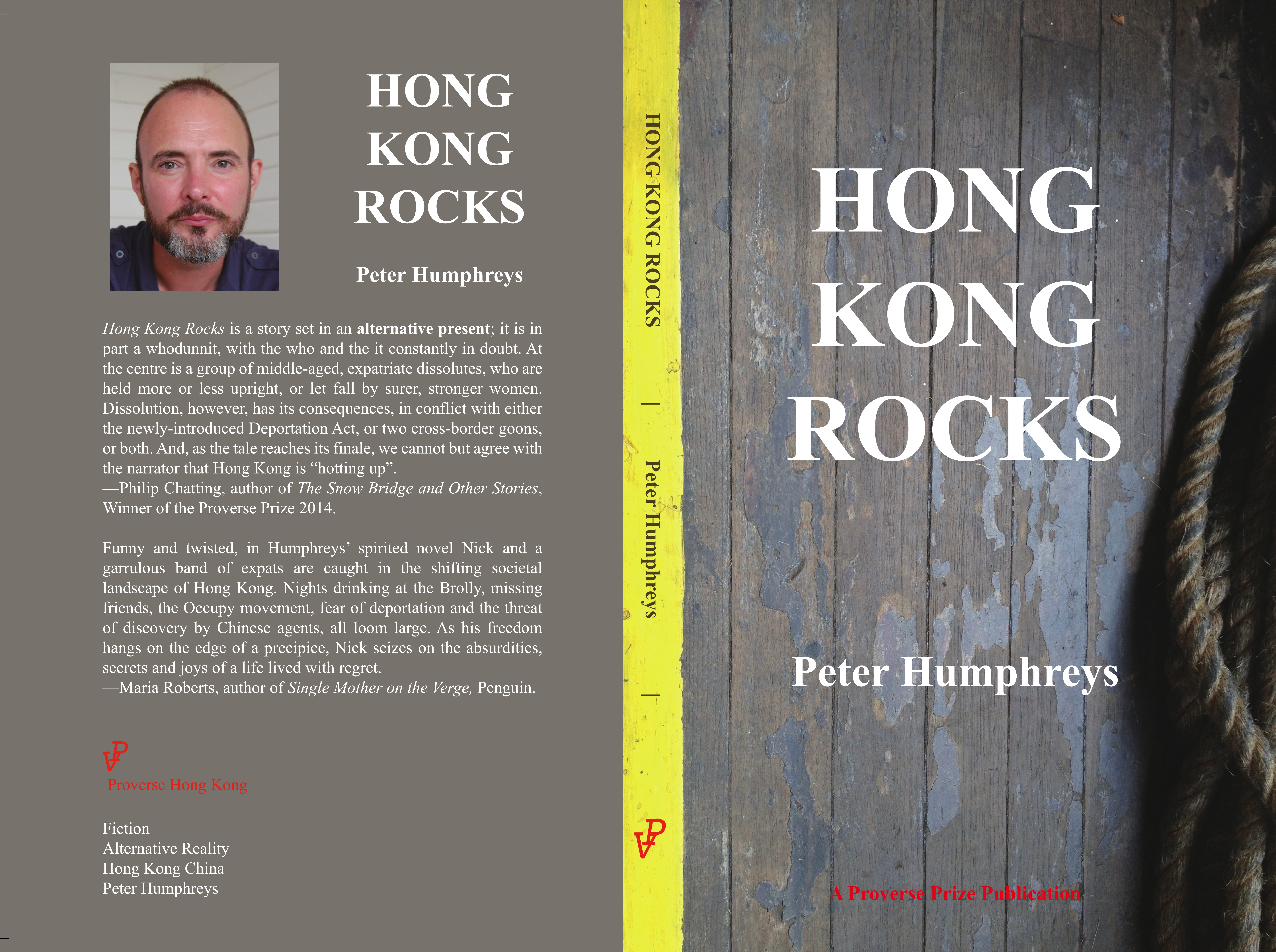 So what was The Islands of Hong Kong has become Hong Kong Rocks (working with a publisher, learning to share decisions and make compromises has been educational) and a relatively calm 2018 in Hong Kong has been replaced by a nightmarish 2019. Against this backdrop, the novel I completed over a year ago is launched today (21 November 2019) at Proverse’s autumn reception in my former home city.
So what was The Islands of Hong Kong has become Hong Kong Rocks (working with a publisher, learning to share decisions and make compromises has been educational) and a relatively calm 2018 in Hong Kong has been replaced by a nightmarish 2019. Against this backdrop, the novel I completed over a year ago is launched today (21 November 2019) at Proverse’s autumn reception in my former home city.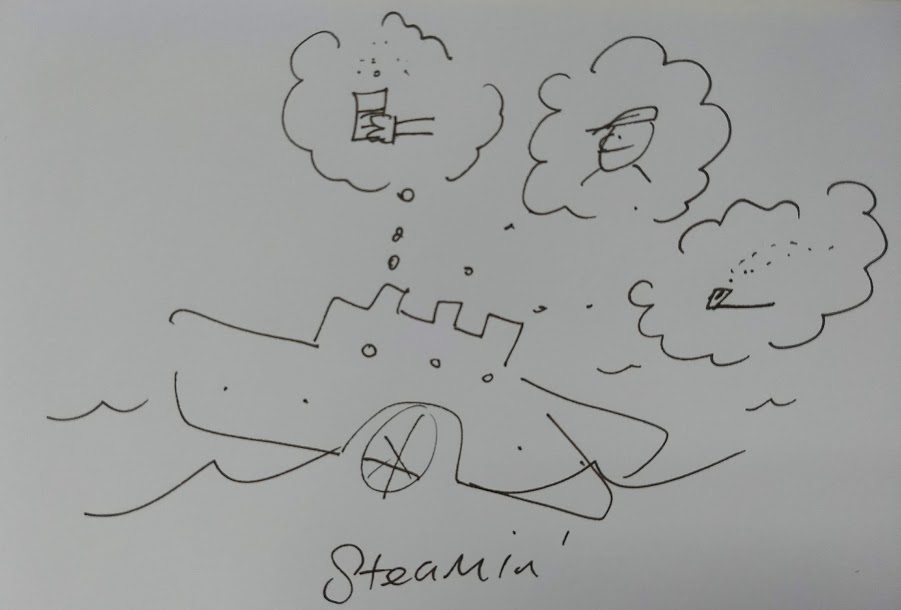 Steaming – i.e. extremely drunk (e.g. ‘Shouldn’t have mixed my drinks, I was steamin’ when I got home’) – originates in Scotland, where legislation in the 1850s meant the only way to enjoy a legal drink on a Sunday was as a traveller; hence the speedy formation of steamship operators offering convenient ‘booze cruises’ along the Clyde. Inevitably, some of these bygone travellers returned to port ‘steamin’’ and in need of a wee; hence, the largest urinal in Scotland is at the pier at Rothesay on the Isle of Bute. Yes, drinking was a largely male preserve back then, but I’m told facilities for women haven’t exactly come on in leaps and bounds in the interim.
Steaming – i.e. extremely drunk (e.g. ‘Shouldn’t have mixed my drinks, I was steamin’ when I got home’) – originates in Scotland, where legislation in the 1850s meant the only way to enjoy a legal drink on a Sunday was as a traveller; hence the speedy formation of steamship operators offering convenient ‘booze cruises’ along the Clyde. Inevitably, some of these bygone travellers returned to port ‘steamin’’ and in need of a wee; hence, the largest urinal in Scotland is at the pier at Rothesay on the Isle of Bute. Yes, drinking was a largely male preserve back then, but I’m told facilities for women haven’t exactly come on in leaps and bounds in the interim.

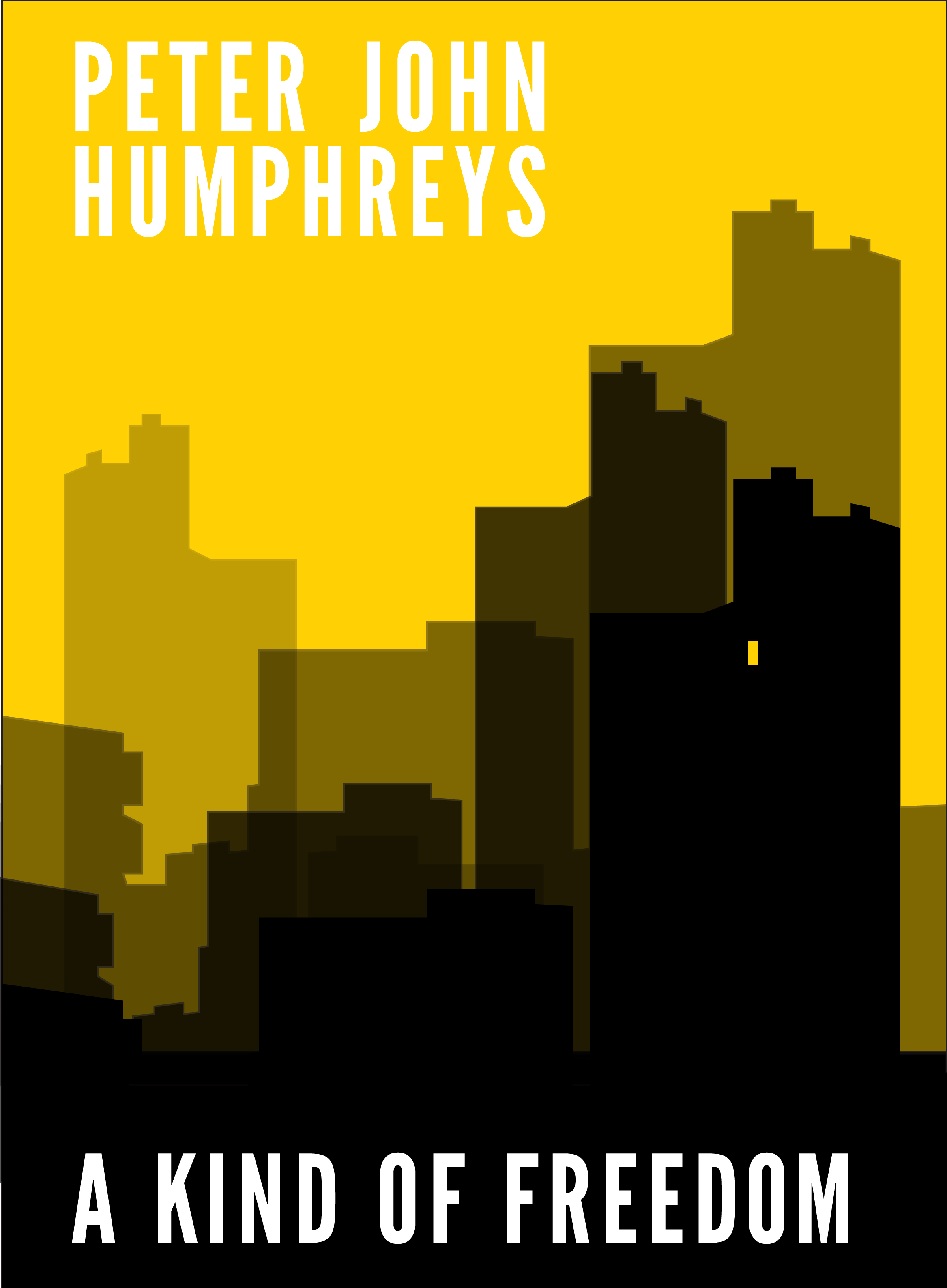
 The world is more terrifying than ever, especially to fiction writers – a particularly wimpy bunch. You could argue that Hemingway and Orwell were exceptions to the rule but it’s doubtful either would have lasted long in a Game of Thrones-type landscape. Journalists are far braver, of course; an increasing number of them giving their lives for diminishing returns in the
The world is more terrifying than ever, especially to fiction writers – a particularly wimpy bunch. You could argue that Hemingway and Orwell were exceptions to the rule but it’s doubtful either would have lasted long in a Game of Thrones-type landscape. Journalists are far braver, of course; an increasing number of them giving their lives for diminishing returns in the  While I’m running a course in urban sniping for short story writers next week at Fringe,
While I’m running a course in urban sniping for short story writers next week at Fringe,  The impressive panel unveiled at its launch on 13 November 2016 is led by
The impressive panel unveiled at its launch on 13 November 2016 is led by 
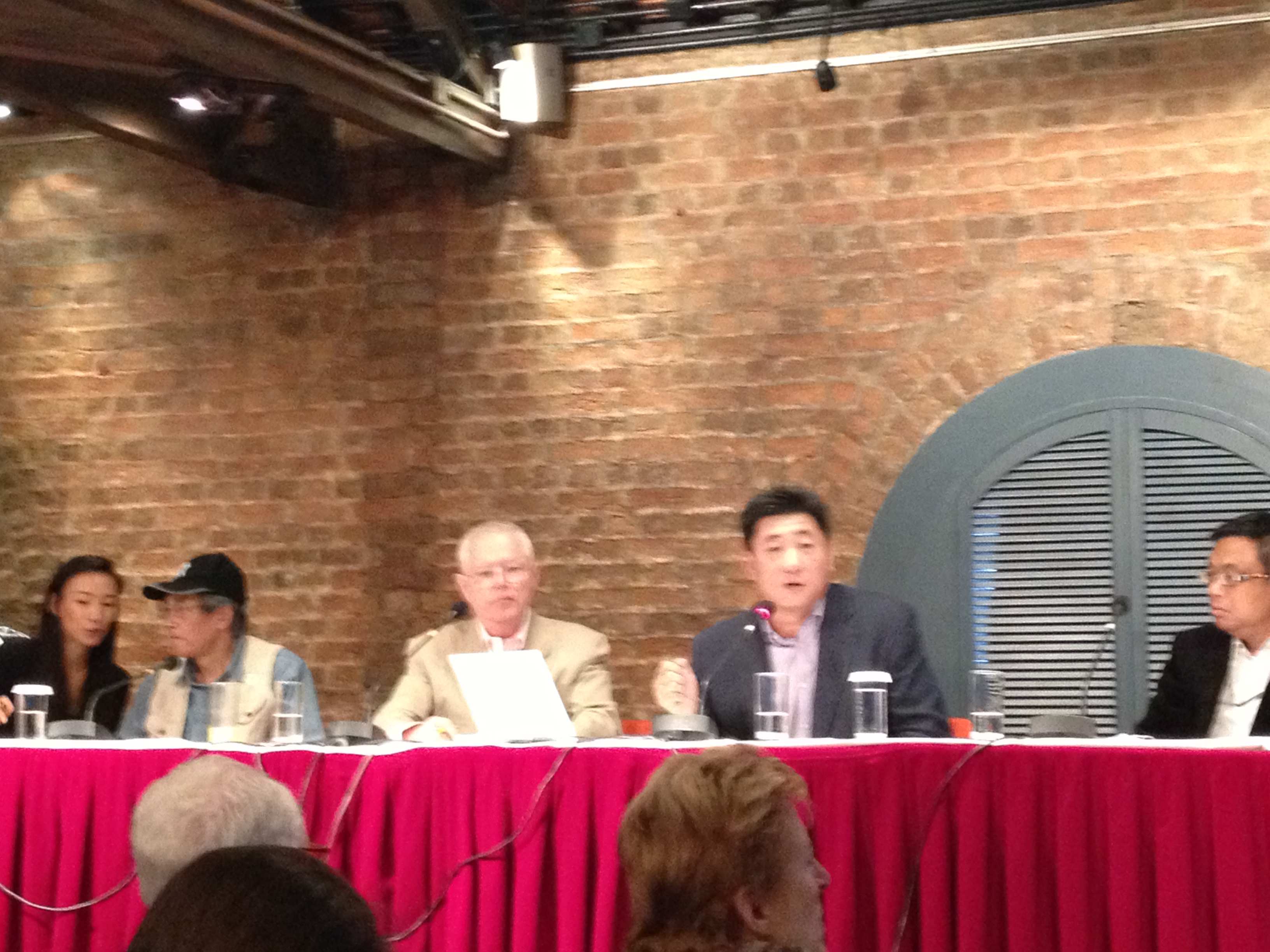 Bao Pu, founder of New Century Press, picked up where he left off at the
Bao Pu, founder of New Century Press, picked up where he left off at the 
